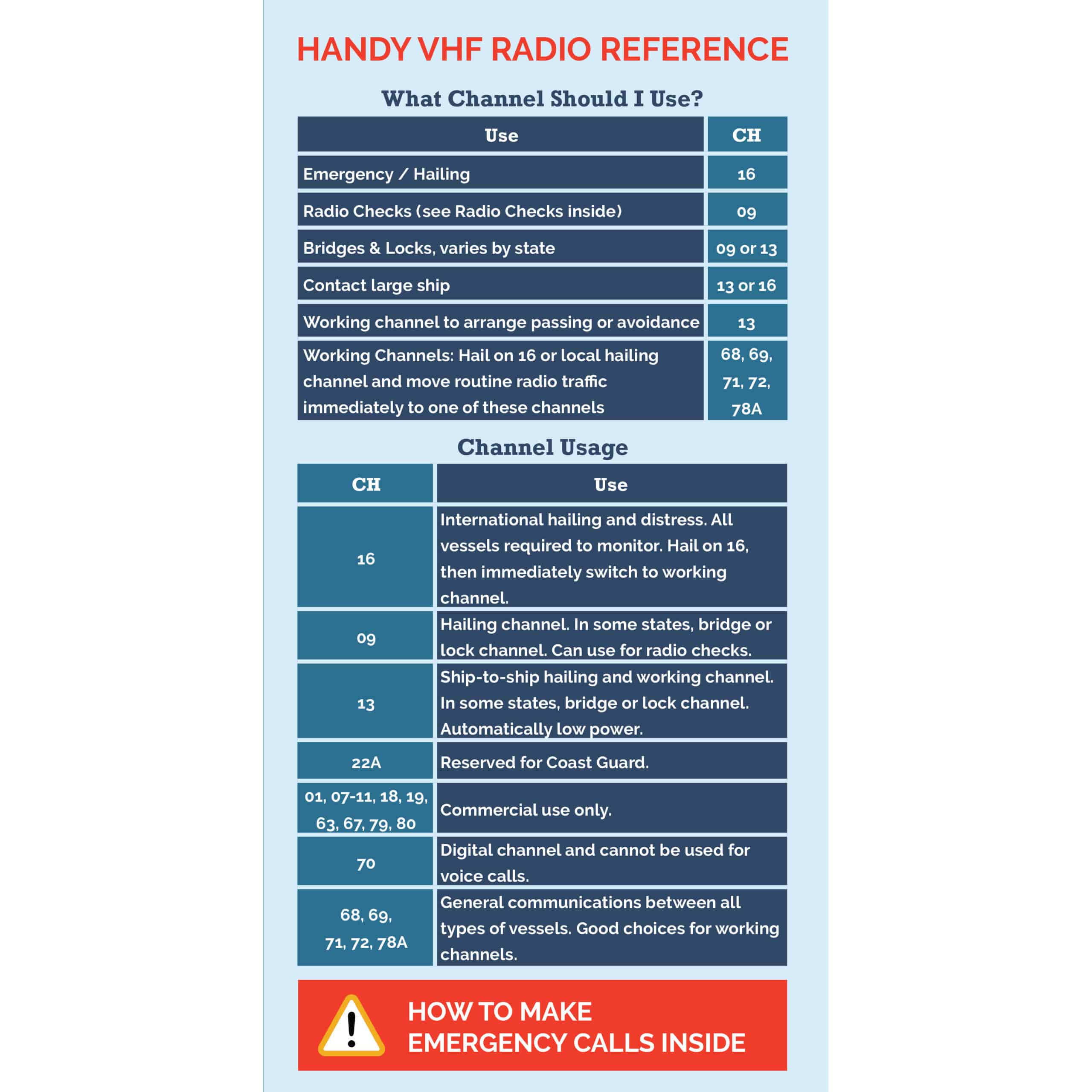“Another night with not enough sleep!” Reading new cruiser blogs and Facebook postings, it seems to be a common problem.
Before cruising, I had thoughts of being rocked gently to sleep on the boat and sleeping like a baby. So it was a rather rude awakening (bad pun) when it didn’t work that way right off the bat.
Pre-cruising, I thought about possibly not getting enough sleep if we did an overnight passage (more on this later). But “every day?” No.
The causes are many. First, it’s just plain a new bed. New noises. And, initially, a new lifestyle. A transition.
Lying in bed, even while still at the dock, the questions and thoughts come fast and furious: I have no idea what I’m doing. Where did I put the coffee for breakfast? We brought way too much stuff, but what should I get rid of? Someone mentioned watch out for the shoal — what shoal? What’s that noise? I have no clue how to use any of the gear on this boat. What have I gotten myself into?
At the same time, there’s a certain amount of excitement for a new adventure: Where will we go? Will we see a whale? A turtle? A green flash?
The first nights — weeks, even months — at anchor typically bring another round of wakeful nights. Will this boat ever stop rocking? Will the anchor hold? Will that squall hit us (followed by “will we be okay if it does”)? I am so sick of hearing the waves slap the hull. What was that noise? I’m worried about we’re planning for tomorrow. I am so hot/cold.
Everybody has different questions and different amounts of restlessness. First, I want to say that whatever you’re feeling is normal. Don’t worry that you’re weird.
That said, sleep deprivation is a very real problem for cruisers. It causes poor concentration, difficulty in learning new things (yeah, just as everything is new), and lack of coordination (and you’re now living on a moving platform). There is also grumpiness, mood swings and impatience (all at a time when — for most of us — we’re suddenly living in a much smaller space with someone else around 24/7).
It’s easy for things to spiral downward. Problems and uncertainty pile on; doubts and discomfort are magnified. Discussions turn into arguments and “I hate this boat!” might even be uttered. I have always been amazed in such circumstances what a good night’s sleep can do to restore the equilibrium and enthusiasm.
And while I don’t have answers to every cause for insomnia, here are a few things that have helped Dave and me over the years:
- Have a comfortable bed that’s warm/cool enough and so on. If the bed’s not conducive to sleeping, it’s just that much harder to fall asleep and stay asleep. Good pillows, a mattress topper and a fan or two can do wonders without the expense of all new bedding (read more)
- Slow down. Don’t try to leave the dock too soon after moving aboard — give yourself a little time to settle in. Don’t try to make as many miles in a day. Plan more lay days. Do something off the boat, just for fun. In short, relieve the time pressure and stress.
- Explore alternate routes if a particular routing option makes you unduly nervous. Often we find that a less stressful route adds little to the length of the trip — recently an alternate route only added a half mile with the bonus of giving us better sailing for over 15 miles!
- Learn to use your equipment one item at a time until everyone is comfortable with all of it. Being comfortable and confident in the boat helps considerably.
- Investigate repetitive noises and figure out how to silence them: halyards slapping, dishes rattling in the cupboard, squeaky fans, whatever. Not only does it keep these noises from bothering me, it also makes “weird” noises stand out more — I sleep better knowing that I’m more likely to hear a potential problem.
- Perfect your anchoring and use an anchor alarm. We always anchor like we know it will blow 50 and (not deliberately) have tested our anchoring setup in more than that. Knowing that we are unlikely to drag helps me sleep better as does knowing that the drag alarm will sound if we do. We tend to set the drag alarm shorter than our actual swing diameter so that it will sound not only if we drag but also if we have a major wind shift as would happen just before a squall. Before we were comfortable anchoring, even through squalls, we always talked about what we’d do if we did drag. I’m one of those people who find having a plan for “what ifs” reduces my fear considerably.
- Use flopper stoppers, a second anchor or swell bridle if needed to hold the boat bow into waves or swell — often, current will hold the boat at an odd angle that produces a lot of rolling. Taking action to mitigate it can make a huge difference.
And to be perfectly honest, there’s also just a certain amount of “it takes time” to settle into a new life, just like it would take time if you had moved from one land home to another. To feel comfortable in your new home. To know what sounds are normal and what deserves a look. To feel in tune with the motion of the boat as it floats, rocks and rolls — and to feel when things are different.
But there are also times that even all this doesn’t help. I’ve cruised for over 10 years and am — normally — quite comfortable on the boat. Last summer in the Bahamas, we had a time when things just weren’t going right: it was hotter than ever, I was sick with a cold, we’d run out of propane and to top it all off, I wasn’t sleeping well due to a very confused swell in our anchorage (read about it here). Believe me, the lack of sleep made everything else ten times worse. The solution was changing to a much calmer anchorage.
I’ve known of other new cruisers who made an unplanned (and unbudgeted) stop in a marina for a couple of nights — after the first good night’s sleep, they were able to think and discuss what they needed to do to sleep well at anchor. Others simply got off the boat for a night in a motel.
Most of us can deal with a single night of poor sleep when conditions — such as a squall — keep us up. But night after night? No way.
Whatever it is, you have to do something to break the cycle of sleeping poorly so that you can figure out the real solutions so that you sleep well the vast majority of nights.
Flatten the learning curve with practical how-to info that gives you the confidence to step into life aboard.
Start Learning Today

Carolyn Shearlock has lived aboard full-time for 17 years, splitting her time between a Tayana 37 monohull and a Gemini 105 catamaran. She’s cruised over 14,000 miles, from Pacific Mexico and Central America to Florida and the Bahamas, gaining firsthand experience with the joys and challenges of life on the water.
Through The Boat Galley, Carolyn has helped thousands of people explore, prepare for, and enjoy life afloat. She shares her expertise as an instructor at Cruisers University, in leading boating publications, and through her bestselling book, The Boat Galley Cookbook. She is passionate about helping others embark on their liveaboard journey—making life on the water simpler, safer, and more enjoyable.










Michael Talcott says
Rum works
The Jedi Fisherman says
thanks for that!
The Boat Galley says
Yes, and no. Alcohol can disturb sleep too (not saying that as someone who doesn’t drink . . . )
Michael Talcott says
All the shouting and hollering and carrying on that a rum-soaked sailor may do will not disturb his sleep one jot. Those around him or her might not sleep so well though.
Chris Layman O'Niell says
The Boat Galley Yep! It may help me go to sleep but after drinking I’m not likely to stay asleep
The Jedi Fisherman says
Anything related to is so important
Claire Ford says
The lay days are VERY important. Three or four days of straight cruising (up at 7, anchored at 7) can take a huge toll on you, so don’t plan too much in one cruise. We usually cruise three days and rest one unless weather is a factor. Keep it as relaxed as possible, and don’t do too much on the lay day because your body needs the down time.
Michael Guelker-Cone says
A comfortable bed is a must. We added 4-inches of memory foam to our mattress and sleep every bit as well as we do on our Temperpedic at home.
Beth Jordan says
I find that tying up at a marina is a lot like sleeping in your car in a Wal-Mart parking lot. Strange people walking by right outside your bedrooom, weird noises, and zero privacy.
My good nights’ sleep recipe is plenty of exhaustion topped off with ear plugs.
Kelly Hauquitz says
Which anchor alarm app do you use? Looking for a recommendation. Reviews in forums & app store are all over the place. Thanks!
Carolyn Shearlock says
I’m on Android, and use Anchor Watch: https://play.google.com/store/apps/details?id=com.webmajstr.anchor&hl=en
I use the free version (aka “Anchor Lite”) and it’s never failed to go off (I set it a little less than our swing diameter so that if we get a big wind shift it will go off and alert me to go check things).
I tried probably 10 ashore — I’d “set” the anchor, then walk away with the phone and see if it went off. This one gave me the best results, so it’s what we’re using.
Kelly Hauquitz says
Thanks for following up! Much appreciated. Take care w/ hurricane prep. Prayers!
Chuck B says
Also check out Vesper’s XB-8000 or Cortex — not only do they give you AIS, fantastic safety feature in its own right, you also get an anchor alarm which doesn’t require any external device to alert you about dragging. A speaker (or buzzer in the case of the XB-8000) connects directly to the unit. As long as the unit has power, no separate chartplotter, screen, or smartphone (which can run out of battery or otherwise silently fail at an inopportune time) is needed to sound the alarm.
Andre Joniec says
Great article. I thought maybe it was just me being paranoid all the time at anchor as my family snored away. Glad to feel normal again.
Fran says
How do you sleep with a snoring husband on a small boat that keeps yoy awake?
Carolyn Shearlock says
Same way you would ashore, except that you can’t go to a different room. If the snoring is THAT loud, need to talk to his doctor. I have friends that have been tremendously helped by their doctor.
Christine says
I have found that Apple AirPods Pro are pretty darn good at eliminating external noise while insuring you still get the blaring anchor alarm (if it’s set up on your other Apple device). I generally sleep with at least one in while we are anchored out and then I have one ear (the one on the pillow) tuned to weird boat sounds and the other to the alarm while canceling out weird hubby noises. Dog barking still gets through the noise cancellation.
I set at LEAST 2 anchor alarm apps. We found out in the Dry Tortugas that with no cell coverage, some apps don’t work. So, check beforehand… try turning off your cell coverage in settings and do the dock walk that Carolyn talked about. YES, our boat electronics have a drag setting, too, but we can’t hear it unless we are sitting 5 feet away. We plan to add a horn that goes off in the aft cabin as a backup to the other backups. Yes, we know how to anchor but sometimes an anchorage can be kinda squirrelly in our area and better have a good plan.